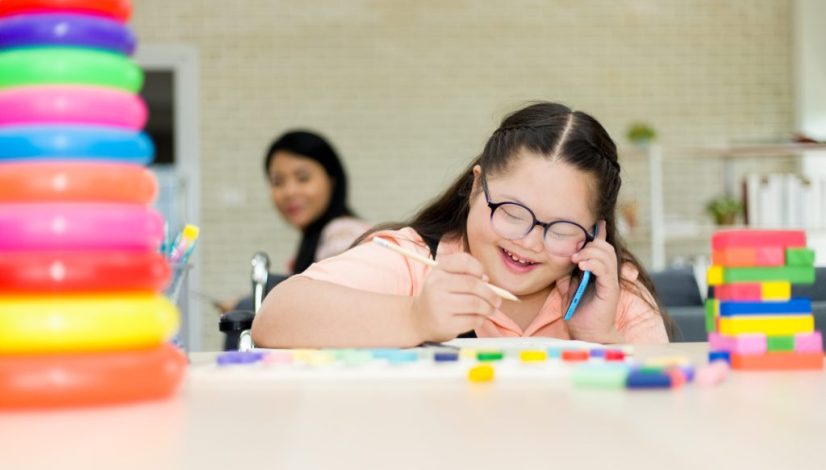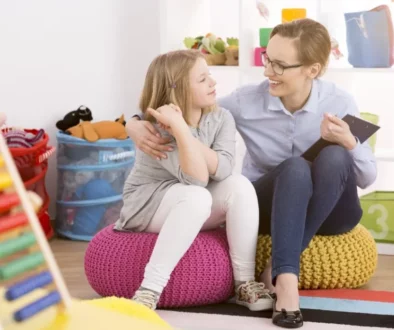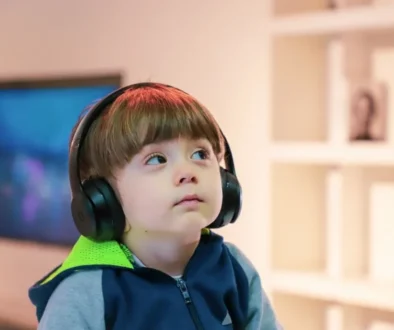7 Tips for Helping Your Autistic Child Adjust to School
Are you worried about sending your autistic child to school?
As a parent of a child with autism, the thought of enrolling your child in school can be both exciting and terrifying. On one hand, going to school can give your child new ways to learn and grow, not limited to the school’s curriculum.
But on the other hand, you know that coping with autism can be a big challenge all on its own. And being in a new school can be an especially challenging and scary situation for autistic children.
However, there’s good news. With the right precautions, school can turn out to be a fun and fulfilling experience for your child. It’s all a matter of going in with the right mindset and putting some simple preparations in place.
In this article, we’ll discuss seven ways to help your child adjust to school. From communicating with your child’s school to promoting independence in your little one, these tips will give you the tools you both need to thrive.
Keep reading for all you need to know.
1. Communicate With the School
Open communication with the school will be critical for helping your child adjust. It will help ensure the teachers understand your child’s needs. It will also help them create a positive and inclusive learning environment for your child.
It’s a good idea to schedule regular meetings with the teachers to discuss your child’s progress and any difficulties they may be facing. You should also try to stay informed about school policies and programs that may affect your child.
You might consider joining the Parent-Teacher Association (PTA) or a special education advisory committee at your child’s school.
2. Prepare Your Child in Advance
Before the first day of school, take time to familiarize your child with the school environment and routines. This can help reduce anxiety and make their transition to school life easier.
Get permission to take your child on a school tour. Let them see where their classes will be and where they will eat lunch. If you get the chance, introduce them to their teachers and classmates, and have them practice routines like opening their lockers and navigating the school hallways.
This will make your child feel more at ease and confident on the first day of school.
3. Create a Structured Routine
Structured environments are ideal for autistic children. A consistent, predictable routine can help your child feel safe and prepare them for the day ahead.
To help your child make the most of their school life, create a daily schedule that you will follow together. It should include time for morning preparation, transportation to and from school, homework, and recreational activities.
Include your child in the process of developing their routine. This way, they will feel like they have some ownership and responsibility for it.
4. Provide Social Skills Training
Many autistic children struggle with social interactions. Helping your child learn social skills can help them communicate more effectively, make friends, and navigate social situations without discomfort.
Consider enrolling your child in a social skills group or program designed specifically for autistic children. Programs like these can help your child learn how to start and maintain conversations, read social cues, and understand the unwritten rules of social interactions.
A proactive, effective approach to social skills training can be a lifesaver for a child with autism. Don’t underestimate the benefits it can provide.
5. Use Visual Aids With Learning
Visual learning aids often work well for children with autism. Illustrated flashcards and physical props for illustrating abstract concepts are just two examples.
Visual aids can also help your child understand what to expect from the upcoming day. You might make a visual schedule with pictures for each activity, such as going to their math class or eating lunch, and post it somewhere visible.
6. Encourage Independence in Your Child
As your child grows, you must help them take on more responsibilities so they won’t become dependent on you. They might need encouragement to make their own decisions. This will help them develop independence and self-reliance.
Encourage your child to take charge of their daily routines. You might have them set their own alarm clock or pack their own lunch. And allow them to make decisions about their day by giving them options.
The positive impact of promoting self-reliance in this way cannot be overstated. It can provide a foundation of confidence that will empower your child throughout their life.
7. Make Self-Care a Priority
Caring for an autistic child can be very emotionally draining. As a parent, it’s your responsibility to take care of yourself and seek help when needed.
This might mean reaching out to other parents of autistic children. You might locate a therapist who specializes in autism spectrum disorder.
Most importantly, you must take time for yourself. Whether you like to run, read books, or attend yoga classes, free time is essential for your mental health.
Another danger to watch out for is disconnecting from the world. Make sure you maintain your relationships and spend time with friends and family. You may even want to seek mental health counseling.
Help Your Autistic Child Thrive in School and Beyond
Helping your autistic child adjust to school can be challenging. But by applying the right strategies now, you can create a positive and successful school experience for your child. As a result, they’ll be off to a fantastic start to the rest of their life.
Getting specialized care is essential for families that have children with Autism Spectrum Disorder. If your child seems to show symptoms of autism and you suspect they may be on the spectrum, you don’t have to go it alone.
For an accurate diagnosis and ongoing autism help in Texas, contact Developmental Pediatrics today.



